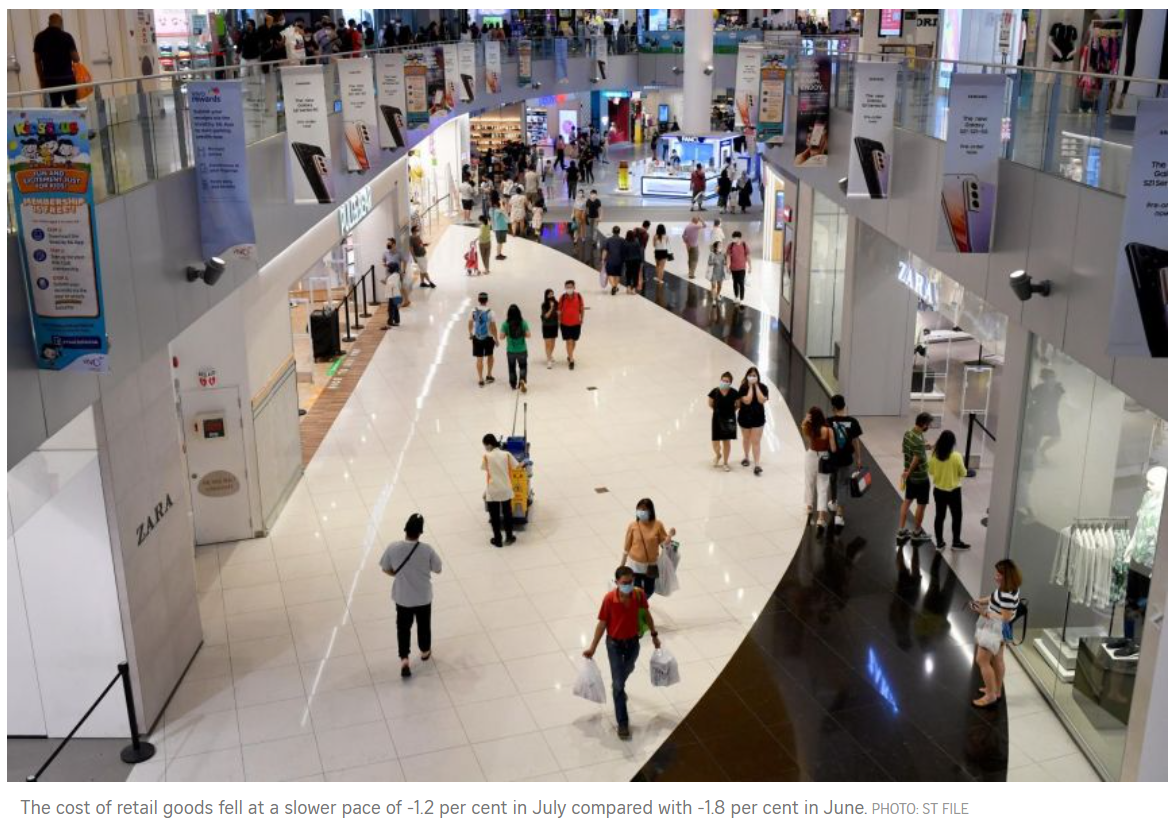Singapore core inflation rises for 6th month, expected to increase gradually in coming quarters
The Straits Times: SINGAPORE – Core inflation in Singapore continued its upward trend for the sixth month running in July, on the back of higher electricity and gas costs.
Core inflation, which excludes accommodation and private road transport costs, rose to 1 per cent on a year-on-year basis last month, up from 0.6 per cent in June.
Meanwhile, overall inflation edged up to 2.5 per cent, up from 2.4 per cent in June. This was on account of higher private transport and accommodation costs, said the Monetary Authority of Singapore (MAS) and the Ministry of Trade and Industry (MTI), which released the data on Monday (Aug 23).
The increase in headline inflation was due to a pickup in core inflation, as well as higher accommodation and food prices.
This outweighed the smaller decline in retail cost and other goods, the two agencies said.
Electricity and gas costs rose 9.9 per cent year on year, on the back of electricity and gas tariff increases due to a hike in global oil prices from a low base last year.
Meanwhile, accommodation inflation saw a 1.4 per cent uptick, driven by a larger increase in housing rents.
On the other hand, the cost of retail goods fell at a slower pace of -1.2 per cent in July compared with -1.8 per cent in June, largely due to a smaller decline in the prices of clothing and footwear.
Services inflation edged down to 1.3 per cent in July, compared with 1.4 per cent in June, due to a decline in telecommunication services fees.
At the same time, the smaller increase in car prices also led to a fall in private transport inflation, which came in at 12.6 per cent year on year in July compared with 14.9 per cent the previous month.
MAS and MTI noted that external inflation has remained elevated given the transfer of higher oil prices and cost of intermediate goods to final consumer prices, and these upward pressures on global inflation should ease over the course of the year.
Crude oil prices have moderated recently alongside higher oil production, they added.
Locally, lingering uncertainty as Singapore transitions to a virus-endemic state could weigh on consumer sentiment and hence dampen domestic price increases in the near term, the agencies said.
“Wage increases should continue to be restrained as the slack in the labour market, while diminishing, will take time to be fully absorbed,” they said.
“Meanwhile, commercial rents are projected to stay low, capping overall business cost pressures. In comparison, private transport and accommodation costs should remain resilient on the back of firm demand for cars and rental accommodation.”
Core inflation is expected to increase gradually in the coming quarters, while overall inflation is projected to ease in the coming months as base effects fade, MAS and MTI said.
Core inflation is forecast to average between 0 per cent and 1 per cent for the year, while headline inflation is predicted to come in between 1 per cent and 2 per cent.


 Thailand
Thailand




